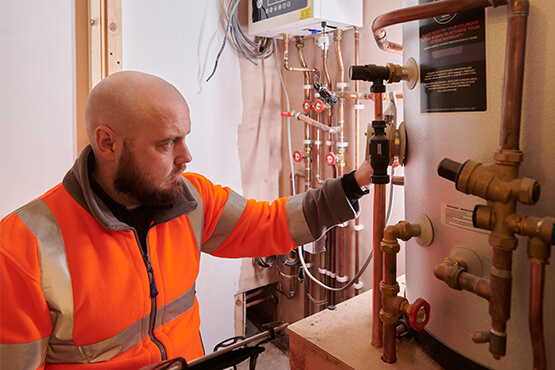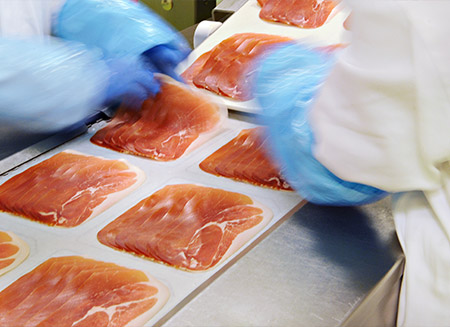380+ C-suite leaders from £100m+ businesses across the manufacturing, real estate and construction, retail and supply chain, technology, and energy and infrastructure sectors share their optimistic outlook for M&A inward investment deals in the coming year.
The manufacturing and industrials sector is navigating a complex landscape, with new and changing US tariffs adding pressure to an already strained environment marked by cost inflation, intense competition, supply chain disruption and a difficult labour market including skills shortages.
However, the recent UK-US trade deal has eased some of this pressure by removing or relaxing many tariffs, creating renewed opportunities for transatlantic investment. Additionally, the UK-EU food standards deal agreed in May 2025 will prevent border checks on agricultural produce such as meat and dairy, reducing trade friction and costs for agrifood businesses on both sides. This agreement is expected to significantly boost cross-border food and drink trade, making UK-EU market access more attractive for investors and potentially accelerating consolidation activity across both jurisdictions.
These findings, gathered in early spring before the latest wave of global economic uncertainty, reveal a confident outlook in the food and drink manufacturing sector. A significant 84% of respondents expected an increase in M&A activity over the next year - the most optimistic of all sectors surveyed. This reflects strong investor appetite, and an industry poised for consolidation.
Nearly two-thirds (65%) of respondents said they are diversifying their services and product offerings to attract investment, indicating a shift towards broader, more resilient portfolios. In the UK, this optimism may be linked to policy decisions such as DEFRA’s move to scrap GB-wide labelling rules which Browne Jacobson reported on in early 2025. As a result, 78% reported increased confidence, likely influenced by government efforts to reduce regulatory uncertainty and cost.
The Retained EU Law (Revocation and Reform) Bill 2022 allows the UK to move away from EU frameworks and adopt a more flexible regulatory system – especially for emerging sectors. A 2022 Food Standards Agency paper supports this direction, encouraging innovation that promotes healthier, more sustainable products while reducing unnecessary burdens.
Innovation and growth remain key drivers. Over a third (35%) of respondents cited growth potential as the primary factor for investment, while 47% pointed to technological innovation, including automation and supply chain improvements. Government incentives are also expected to shape inbound investment patterns, with 81% of respondents (more than any other sector) expecting them to play a role.
Confidence in private equity is high too: 84% anticipate more PE involvement in inward investment over the next 12 months. This is notable given the current economic climate – the Food and Drink Federation reports a 15% surge in core ingredient costs since 2023, and food inflation above 3% in January 20253. Yet only 36% respondents saw inflation and economic instability as key deterrents to investment.
By contrast, 42% pointed to regulatory uncertainty and compliance as the primary risks, especially around food safety, ESG requirements and supply chain resilience. ESG, while recognised, is not yet a decisive factor: 70% said it plays a moderate role in M&A decisions, but only 15% are actively embedding ESG targets into their strategies.
The sector’s view of geopolitical risk is mixed. While 46% believe tensions – particularly from recent US trade policy – will make investors more cautious, 32% think this could actually increase deal activity, as firms look to stable markets like the UK and Ireland. Most respondents expect Europe to remain the main source of inward investment (70%), with just 9% pointing to North America.
Regionally, manufacturers favour investment outside London – 70% expect M&A to focus on the regions. This aligns with wider trends to decentralise and spread risk beyond the capital.
Technology and IP are seen as major deal drivers. 96% of respondents recognise their importance, second only to the tech sector. Digital transformation and AI are also high priorities: 80% say digital transformation will increasingly impact M&A activity, and 75% expect AI to influence acquisitions, valuations or reshape the sector – the highest of any sector surveyed.
These results reflect strong optimism and strategic intent before the re-emergence of trade-related disruption. Innovation, diversification and supply chain resilience were already key concerns and are likely to become even more central in the months ahead.
Browne Jacobson and the Food & Drink Federation: Diversity and inclusion
In relation to food and drink businesses that embed ESG into their strategies, last year, Browne Jacobson partnered with the Food & Drink Federation to host conversations on diversity and inclusion within the industry.
The firm heard from Ali Beresford, Inclusion and Diversity Manager at Nestlé UK and Ireland. Nestlé's global aim for diversity and inclusion to create workspaces where everyone feels included and able to bring their whole selves to work, and Ali discussed how colleague networks across Nestlé UK and Ireland are helping to achieve this.
Expert commentary
Paul Kirkpatrick, partner and Head of Manufacturing and Industrials at Browne Jacobson, comments:
“The sector has been rocked by sweeping US tariffs, but we’re hopeful the UK–US trade deal will support recovery. It’s no surprise most respondents identified technology and IP as key to driving investment. As trade pressures grow, digital and automated businesses stand out for their efficiency and adaptability.”
“We also expect continued consolidation. Acquisitions will be central to growth, especially in expanding product lines and reaching new markets. Investor appetite is particularly strong in areas like alcohol-free drinks, healthy food and free-from products – categories that pair innovation with lower exposure to trade volatility.”
Sam Sharp, partner and Head of Food and Drink at Browne Jacobson, adds:
“Despite cost and supply chain pressures – now worsened by changing tariffs – food and drink manufacturers remain highly confident. This reflects what we’re seeing in practice, with rising M&A activity in early 2025.
“Diversification also stood out – nearly two-thirds of businesses are expanding their offerings to attract investment. This not only improves appeal but strengthens resilience. While trade dynamics may cause caution, well-positioned UK and Irish businesses, particularly in health-focused and premium categories, will continue to attract interest. Private equity appetite remains strong, especially for bolt-on deals that support strategic growth."
Contents
- Investing in the UK and Ireland
- Inward investment in the UK and Ireland in 2025: Sector focus
- 2. Real estate and construction: Cautious optimism for M&A in 2025
- 3. Retail and supply chain: Fashion and beauty retailers eye technology to drive M&A in 2025
- 4. Technology: Complex geopolitical landscape not hampering M&A confidence in 2025
- 5. Energy and infrastructure: Muted confidence for M&A in 2025
- Conclusion: Inward investment in the UK and Ireland: Sector focus in 2025
Expert commentary

Paul Kirkpatrick
Partner
Paul is a Partner in the Manchester Commercial Dispute Resolution Team, specialising in high-value, complex litigation, often with an international dimension.
Paul.Kirkpatrick@brownejacobson.com
+44 (0)330 045 2318

Sam Sharp
Partner
Sam is the head of our food and drink group and has advised a range of clients in the sector, including multinational food and drink manufacturers and distributors, national retailers, restaurant chains and suppliers on a wide range of corporate matters.
sam.sharp@brownejacobson.com
+44 (0)115 908 4812
Contact

Paul Kirkpatrick
Partner
Paul.Kirkpatrick@brownejacobson.com
+44 (0)330 045 2318









































